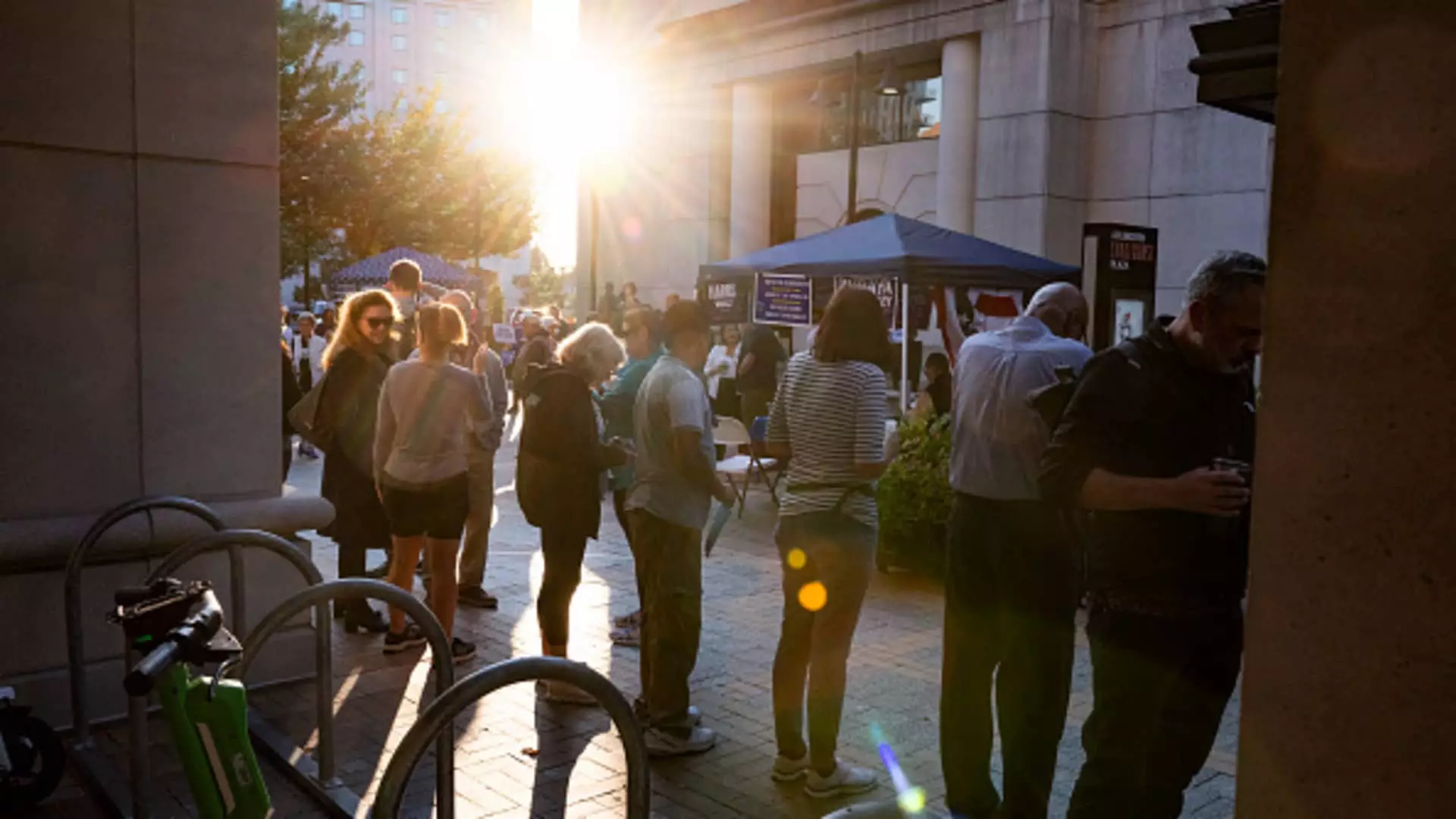On a significant day for voter rights and electoral integrity in the U.S., a federal judge intervened to halt Virginia’s plan to purge its voter rolls of individuals deemed alleged noncitizens. Judge Patricia Giles rendered her verdict on Friday, reinstating over 1,600 individuals who had previously been removed. Central to her ruling was an assertion from the U.S. Department of Justice (DOJ) that the purge, mandated by Governor Glenn Youngkin, was improperly timed, as it occurred less than 90 days from an impending election. This statute is critical, as federal law prohibits states from implementing large-scale removals of voters in that timeframe, raising important questions about the motivations and legality of such actions.
The timing of this ruling comes in the midst of a heated electoral battle as major candidates like Vice President Kamala Harris and Donald Trump vie for the White House. With only days left before voters head to the polls, these developments not only impact the individuals affected but also the broader electoral landscape in Virginia. Obtaining clarity on voter eligibility right before an election poses risks for the integrity of the electoral process. Governor Youngkin’s purge, initiated under the belief that it would enhance election security, instead raised alarms about potential disenfranchisement and the unintended removal of valid voters, some of whom were confirmed to be U.S. citizens.
Judge Giles articulated skepticism regarding Youngkin’s timing, remarking that the executive order’s issuance just before the election appeared strategic rather than coincidental. This judgment highlights an urgent underlying concern: How many individuals wrongly labeled as noncitizens were caught in this net? The DOJ’s claim, confirmed by legal representatives that some American citizens were improperly disenfranchised, prompted Giles to question the state’s methodologies and the motivations behind such a computerized purge.
On the opposing front, Virginia’s lawyers defended the purge as necessary to protect electoral integrity, echoing the governor’s warnings about the implications of allowing noncitizens to vote. However, Giles’ dismissal of their request to delay her ruling underscores a critical tension between perceived security measures and safeguarding citizens’ voting rights.
In response to the ruling, Governor Youngkin has committed to appealing to higher courts, including the Fourth Circuit Court of Appeals. This vow of appeal indicates an escalating legal battle that may not only involve Virginia’s voter rolls but also set precedents for voter disenfranchisement cases across the country. As legal contests unfold, they will likely draw into the conversation broader societal issues related to race, citizenship verification, and political power in states with historically stringent voting regulations.
Ultimately, Judge Giles’ ruling may serve as a catalyst for renewed discussions about election laws and voter protections, emphasizing a need for a careful balancing act between election security and the sacred right to vote. As citizens await the unfolding legal developments, the emphasis must remain on ensuring that every legitimate voice is heard in the upcoming electoral decision-making process.


Leave a Reply